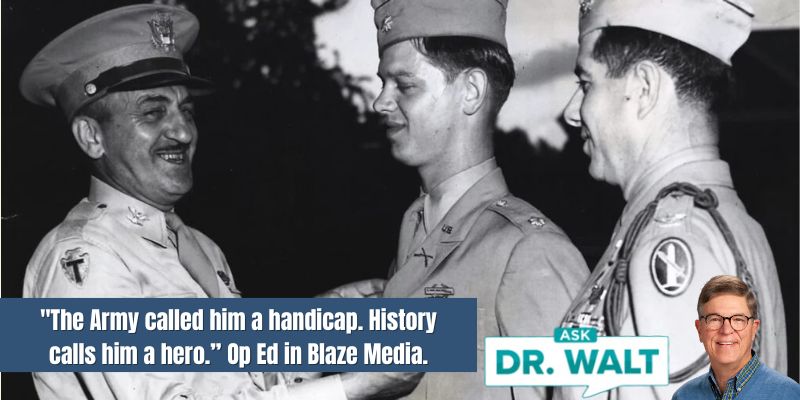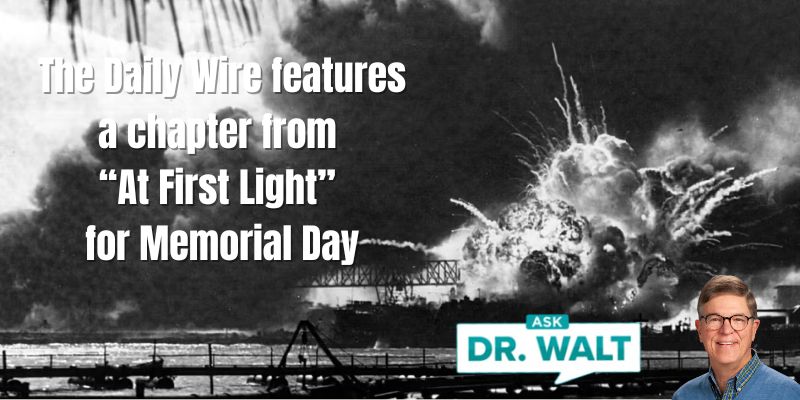
Monthly Family Update – March 2024
March 2, 2024
My “Ask Dr. Walt” column in Today’s Christian Living on cannabidiol (CBD)
March 4, 2024On March 3, Phil Larimore received his first battlefield evaluation, handed to him directly by Major Bacon. The key finding: “Manner of Performance: Superior.” As the major smiled, the command staff applauded, with Ross Calvert leading the cheers. “Phil,” he said, “I could not have been more pleased or proud of my former student’s first performance in battle, and the performance of your brave men.”

That afternoon the men were read a copy of a telegram that President Roosevelt had received from Winston Churchill, the Prime Minister of Great Britain: “I must send you my warmest congratulations on the grand fighting of your troops, particularly the United States 3rd Division in the Anzio Beachhead.”
The GIs appreciated the sentiment, but they had little respect for British cigarettes or soldiers, whom they called ‘tea- and warm-beer drinkers.’
The Brits quipped that the Yanks were “overpaid, oversexed, and over here.”
Not to be outdone, the GIs snipped back laughingly that the English were “underpaid, undersexed, and under Eisenhower.”
General Truscott himself grew increasingly impatient with the British Army’s ability or desire to provide sufficient replacements, leading him to depend far more on his American divisions.
A series of newspaper stories stressed that the 3rd Division, dubbed the “Rock of the Marne” in July 1918, had become the “Rock of Anzio” in 1944, when the better part of seven German divisions was unable to drive the American and British forces into the sea despite three significant attempts.
The enemy abandoned daylight air raids, leading the men to tell rookies, “Look up. If you see silver airplanes, they’re American. If you see camouflaged airplanes, they’re British. If you don’t see any airplanes, it’s the Luftwaffe.”
Nevertheless, anywhere from one to half a dozen attacks were made every night, and the enemy shelling substantially increased after dark. Every day at dusk, the feeling of tension only grew and dispelled any illusions of security. The battle of the Anzio Beachhead remained a grim and deadly struggle.
Of course, Marilyn remained on Phil’s mind. He wrote to his mother:
By the time you get this, it will be April, only a month until you go to Gulfport for Marilyn’s graduation. Boy, how I would like to be there. Wish you would buy her something very nice for me and give it to her.
Because the Germans were bombarding the beachhead day and night, he couldn’t think about Marilyn very often, however. There was only one practical answer to the constant pounding: go down into or under the ground.
As a result, the Anzio Beachhead became a honeycomb of wet and muddy foxholes, dugouts, long slit trenches—even underground rooms. The ghastly battlefield was appallingly reminiscent of World War I trench warfare.
In case you haven’t read or listened to Dad’s book, you can learn more or order it here.
© Copyright WLL, INC. 2024.




